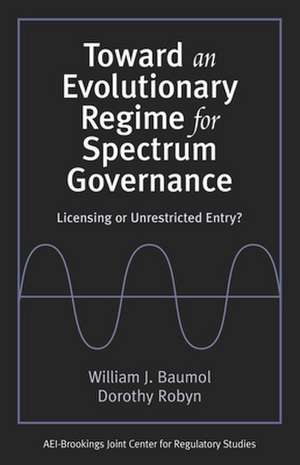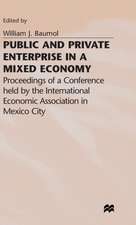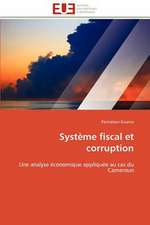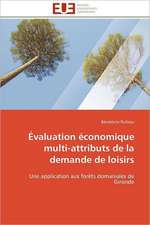Toward an Evolutionary Regime for Spectrum Governance: Licensing or Unrestricted Entry?
Autor William J. Baumol, Dorothy Robynen Limba Engleză Paperback – 3 feb 2006
The federal government's approach to regulating the spectrum remains largely administrative, causing major inefficiency and waste. Ironically, just as the FCC has begun to use market mechanisms, some people are pushing to treat spectrum as a common resource open to all entrants. Commons proponents maintain that with new, interference-avoiding technology, licensing is becoming unnecessary and impractical. In this brief study, noted economist William J. Baumol evaluates two options for spectrum governance—a tradable license (market) approach and a commons approach. He compares the practicality of each in terms of six key issues: interference, adequacy of investment in innovation, monopoly power, preservation of diversity, service to rural areas, and the tension between vested interests and the need for adaptable arrangements. Baumol demonstrates that, while neither approach is ideal, a commons regime has severe shortcomings. Above all, he emphasizes the importance of impermanence in the granting of licenses to preserve the flexibility to adapt to unforeseen technological and other developments.
Preț: 123.07 lei
Nou
Puncte Express: 185
Preț estimativ în valută:
23.55€ • 25.57$ • 19.78£
23.55€ • 25.57$ • 19.78£
Carte tipărită la comandă
Livrare economică 23 aprilie-07 mai
Preluare comenzi: 021 569.72.76
Specificații
ISBN-13: 9780815708490
ISBN-10: 0815708491
Pagini: 85
Dimensiuni: 152 x 229 x 9 mm
Greutate: 0.12 kg
Editura: Brookings Institution Press
Colecția Brookings Institution Press and AEI
Locul publicării:United States
ISBN-10: 0815708491
Pagini: 85
Dimensiuni: 152 x 229 x 9 mm
Greutate: 0.12 kg
Editura: Brookings Institution Press
Colecția Brookings Institution Press and AEI
Locul publicării:United States
Notă biografică
William J. Baumol is a professor of economics at New York University and professor emeritus and senior research economist at Princeton University. He is a former president of the American Economic Association. Dorothy Robyn is U.S. Deputy Under Secretary of Defense for Installations and Environment. Previously, she was a principal with The Brattle Group. She was a special assistant to the president for economic policy in the Clinton administration and previously taught at Harvard University's Kennedy School of Government.
Descriere
A Brookings Institution Press and American Enterprise Institute publication
The federal government's approach to regulating the spectrum remains largely administrative, causing major inefficiency and waste. Ironically, just as the FCC has begun to use market mechanisms, some people are pushing to treat spectrum as a common resource open to all entrants. Commons proponents maintain that with new, interference-avoiding technology, licensing is becoming unnecessary and impractical.
In this brief study, noted economist William J. Baumol evaluates two options for spectrum governance—a tradable license (market) approach and a commons approach. He compares the practicality of each in terms of six key issues: interference, adequacy of investment in innovation, monopoly power, preservation of diversity, service to rural areas, and the tension between vested interests and the need for adaptable arrangements.
Baumol demonstrates that, while neither approach is ideal, a commons regime has severe shortcomings. Above all, he emphasizes the importance of impermanence in the granting of licenses to preserve the flexibility to adapt to unforeseen technological and other developments.
The federal government's approach to regulating the spectrum remains largely administrative, causing major inefficiency and waste. Ironically, just as the FCC has begun to use market mechanisms, some people are pushing to treat spectrum as a common resource open to all entrants. Commons proponents maintain that with new, interference-avoiding technology, licensing is becoming unnecessary and impractical.
In this brief study, noted economist William J. Baumol evaluates two options for spectrum governance—a tradable license (market) approach and a commons approach. He compares the practicality of each in terms of six key issues: interference, adequacy of investment in innovation, monopoly power, preservation of diversity, service to rural areas, and the tension between vested interests and the need for adaptable arrangements.
Baumol demonstrates that, while neither approach is ideal, a commons regime has severe shortcomings. Above all, he emphasizes the importance of impermanence in the granting of licenses to preserve the flexibility to adapt to unforeseen technological and other developments.














